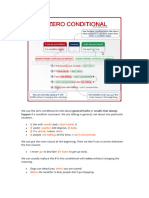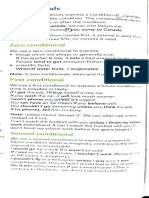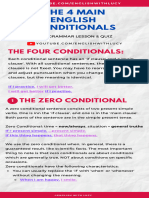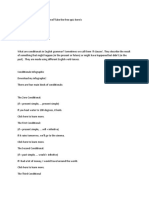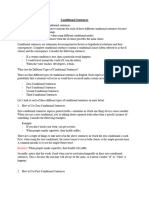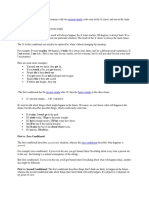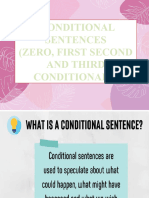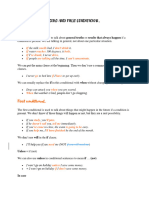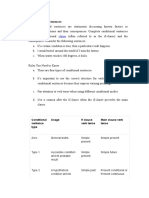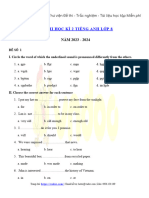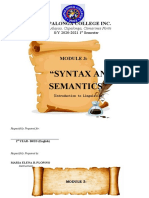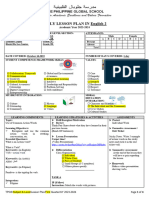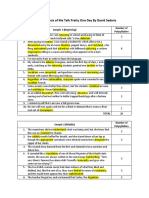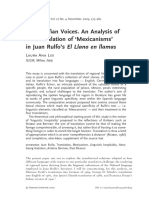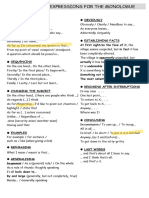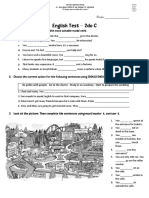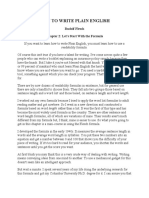0% found this document useful (0 votes)
60 views5 pagesZero Conditional
The document discusses different types of conditionals in English:
- The zero conditional describes general truths or results that always happen if a condition is present.
- The first conditional talks about things that might happen in the future if a condition is present.
- The second conditional describes hypothetical or imaginary situations in the present or future using past tense verbs.
- The third conditional talks about hypothetical or imaginary situations in the past using past perfect verbs.
Uploaded by
leprekonchikCopyright
© © All Rights Reserved
We take content rights seriously. If you suspect this is your content, claim it here.
Available Formats
Download as DOCX, PDF, TXT or read online on Scribd
0% found this document useful (0 votes)
60 views5 pagesZero Conditional
The document discusses different types of conditionals in English:
- The zero conditional describes general truths or results that always happen if a condition is present.
- The first conditional talks about things that might happen in the future if a condition is present.
- The second conditional describes hypothetical or imaginary situations in the present or future using past tense verbs.
- The third conditional talks about hypothetical or imaginary situations in the past using past perfect verbs.
Uploaded by
leprekonchikCopyright
© © All Rights Reserved
We take content rights seriously. If you suspect this is your content, claim it here.
Available Formats
Download as DOCX, PDF, TXT or read online on Scribd
/ 5


